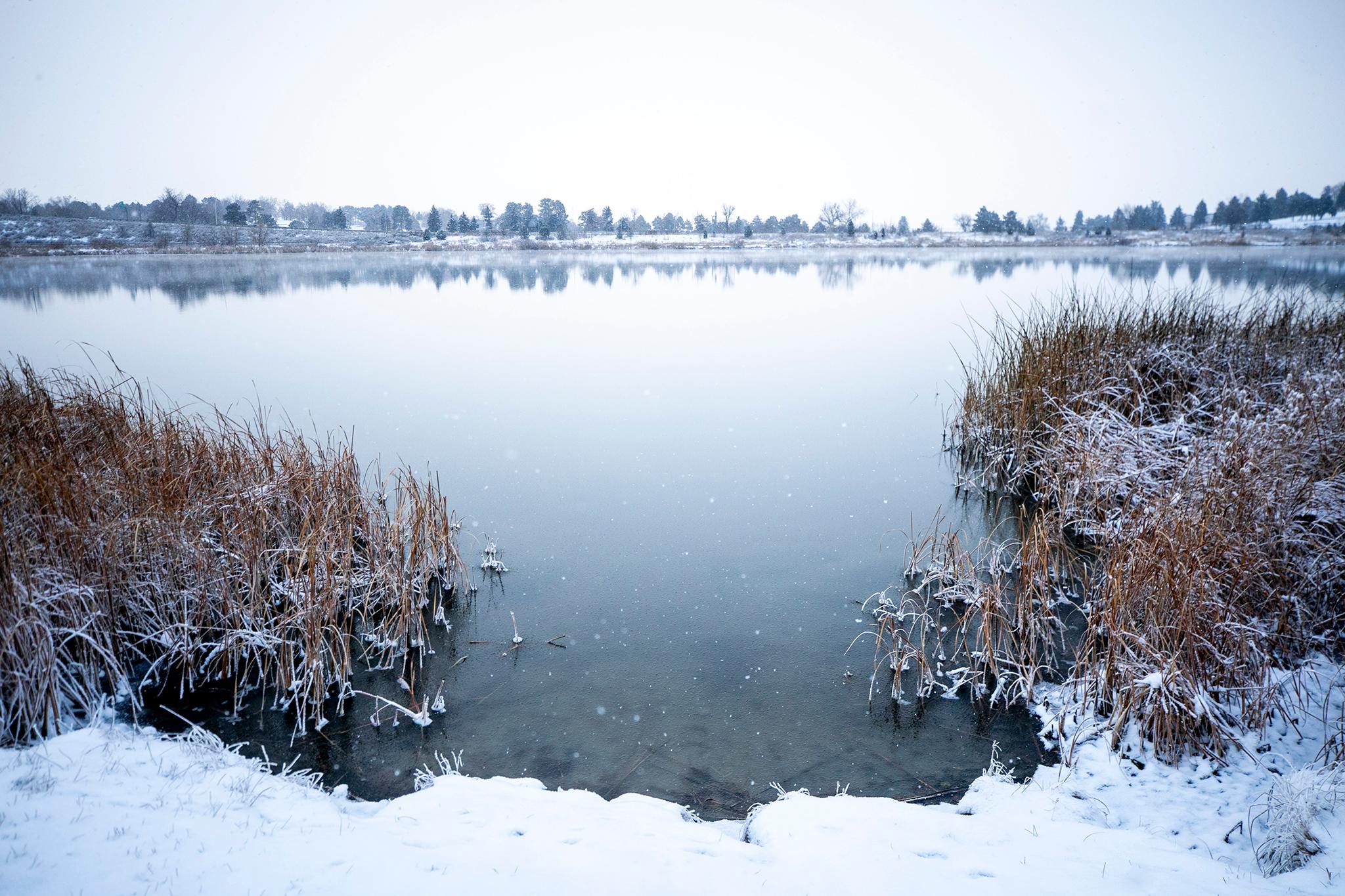
Updated Jan. 15, 2024 at 11:30 a.m.
The arctic air that chilled Colorado all weekend continued Monday, bringing heavy snow and strong winds with it.
The National Weather Service issued a wind chill warning for the central mountains, southern Colorado, the Front Range and the Eastern Plains Monday, saying wind speeds above 50 mph could lead to temperatures of at least 20 below zero. The warning was in effect until Tuesday.
"We’re seeing there’s still snow continuing [in] the mountains, foothills, and even portions of the plains right now," said Caitlyn Mensch, a forecaster at the National Weather Service in Boulder. "We’re seeing that there’s very hazardous travel conditions right now, especially in the mountain passes. So, if you can avoid travel up there, it’d be definitely advised."
On the Western Slope, heavy snow was expected to continue, though gradually lightening up by the end of the day. Though the end of falling snow didn't signal the end of winter hazards. The NWS posted to X, formerly Twitter, cautioning drivers to be wary of icy roads and increased avalanche risks.
Several highways were closed in the central mountains, including I-70, I-25 and numerous mountain passes, according to Colorado Department of Transportation's COTrip website.
The Martin Luther King Jr. weekend is one of the busiest traffic weekends in the mountains, as people travel to ski resorts.
But road traffic wasn't the only mode of transportation impacted by the weather: over 300 flights were canceled and nearly 400 were delayed at Denver International Airport Monday, according to FlightAware.
Avalanche risks were high across the majority of mountains Monday. The Colorado Avalanche Information Center posted to X warning people to avoid all terrain with a higher than 30-percent grade.
Vortex context
The frigid weather system funneling into Colorado comes from the “polar vortex,” a region of cold air and low pressure that’s always circulating near the North Pole. When that air mass expands south, it can blast a torrent of arctic air into the jetstream, where it drops into Colorado and other states.
The weekend cold front could wreak havoc as it moves east across the United States next week, where forecasters are warning of possible blizzards, torrential rain, flooding, and high winds from the Central Plains to the Gulf and East Coast.
Prepare for “life-threatening” conditions
State transportation officials are warning travelers to plan and prepare ahead of time, especially if they have trips booked in the mountains during the weekend, which is one of the busiest of the year due to the Martin Luther King Jr. Day holiday on Monday.
“We anticipate a lot of traffic heading to and from the mountains,” said Matt Inzeo, communications director for the Colorado Department of Transportation.
Inzeo said super-cold temperatures mean the agency’s general advice for winter travel is extra relevant: Check the conditions of state roads and highways before traveling; pack extra pieces of warm clothing, along with some food and water; watch your speed and take extra precautions around other vehicles.
“If you do encounter a problem, it is that much harder to manage it safely in ultra-low temperatures,” he said.
Meier with the National Weather Service echoed the same sentiment for anyone planning to spend time outdoors over the weekend. "If you happen to have some sort of emergency out there … then you're talking life-threatening situations," he said.
In anticipation of dangerously low temperatures, Denver officials have already extended emergency shelter operations through Monday.
- CDOT: Winter Driving Preparedness
- Denver Water: Tips to prevent (and thaw) frozen water pipes in your home
- Colorado Springs Utilities: Winter preparedness tips
Representatives for Xcel Energy, the state’s largest power provider, said the utility is making preparations to ensure there are no interruptions to its electricity and natural gas services during the cold snap.
Spokesperson Michelle Aguayo said current natural gas prices are lower compared to this time last year — $100 per month for the average household’s natural gas service vs. $139 — and said the utility would notify customers if wholesale natural gas prices increase significantly.
Reporting contributed by Eden Lane.








